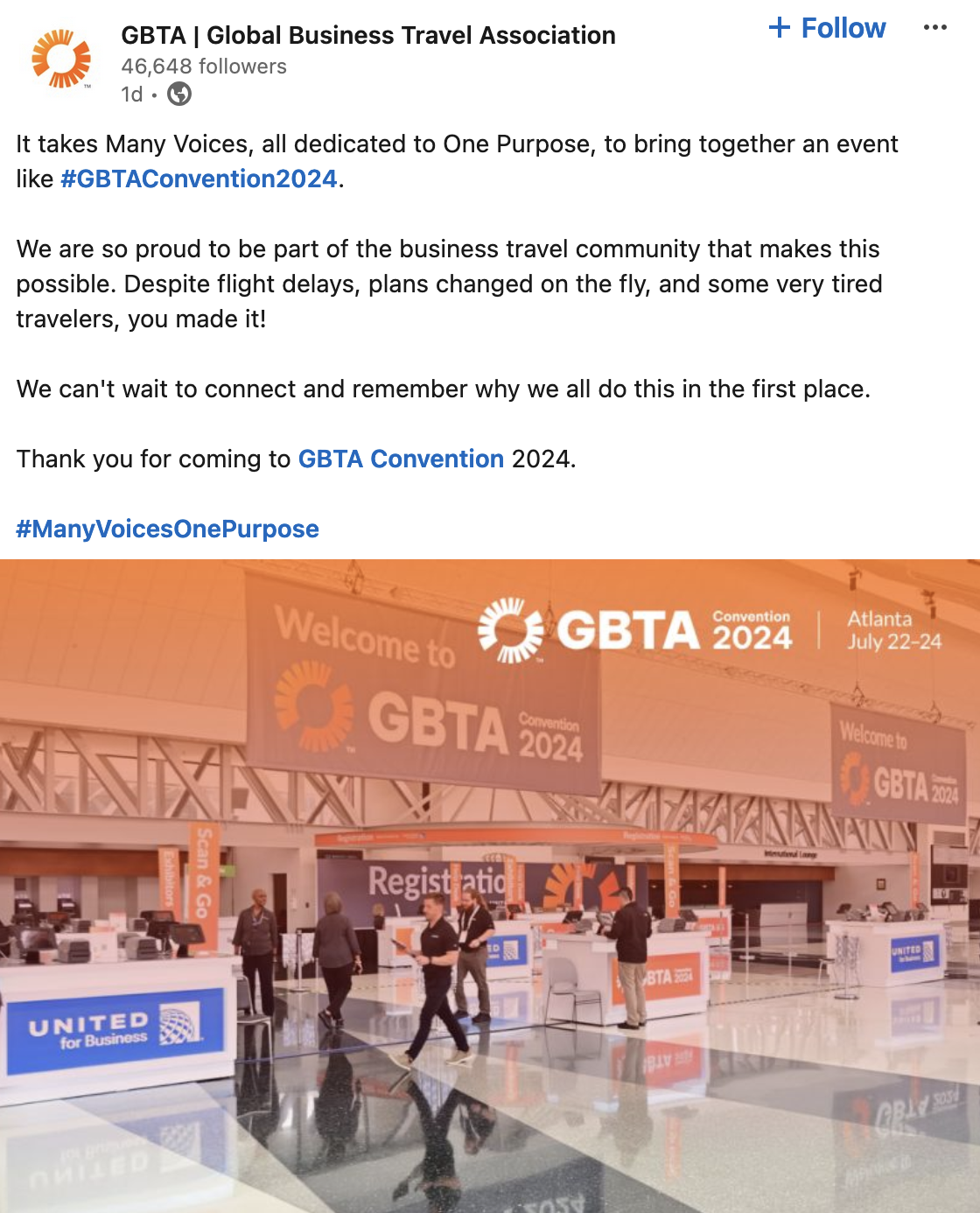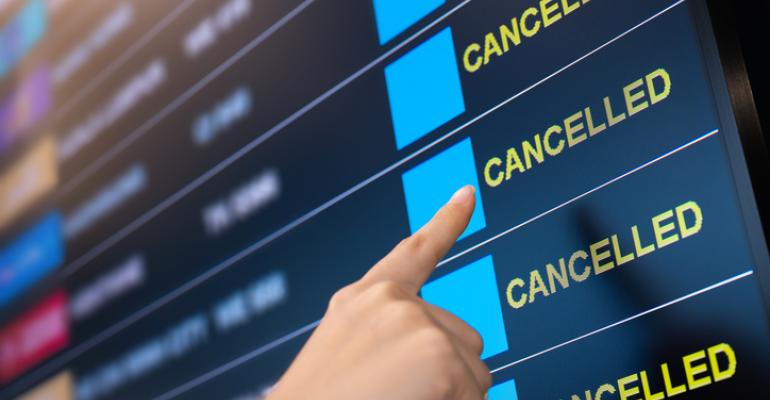When nearly nine million Microsoft-powered computer systems around the world went offline on Friday, July 19, because of a glitch in the CrowdStrike cyber-security program, the airline and hotel industries were hard hit.
More than 5,000 flights worldwide were cancelled that day, while many hotel guests posted to their social-media accounts that they were unable to check out and obtain a final bill, while others were unable to check in.
One hospitality-industry organization whose annual meeting narrowly missed being slammed by the I.T. outage was Destinations International, the association for destination marketing organizations. Its event took place July 15 to 18 in Tampa. Nonetheless, many of its attendees faced delays flying out of Tampa on July 19.
As progress was made over the weekend in resolving the glitch and restoring most organizations’ access to their Microsoft programs, it did not seem likely that travelers headed to another industry meeting—the Global Business Travel Association, set for July 22 to 24 in Atlanta—would also face serious travel headaches.
Unfortunately, that turned out to be wrong.
That’s because one company facing huge disruption to its operations into Tuesday, July 23, was Delta Air Lines—far and away the largest carrier into and out of Atlanta.
With its online crew-tracking system unable to be restored quickly, the airline—which operates about 3,600 flights daily—had to cancel nearly 1,000 flights on July 22 and another 400 by midday on July 23, after cancelling about 4,600 of its 11,000 flights scheduled between July 19 and 21. In total, Delta’s cancellations represent about half of all flight cancellations worldwide stemming from the I.T. outage.
U.S. Transportation Secretary Pete Buttigieg said on July 22 that his office had launched an investigation of Delta after seeing the extended flight disruptions “and reports of concerning customer service failures.”
According to a report by the Associated Press, the investigation will evolve as U.S.D.O.T. “processes the high volume of consumer complaints we have already received against Delta.” Investigators will likely focus on whether Delta is complying with federal rules and offering prompt refunds to passengers whose flights are canceled or significantly delayed.
Biz-Travel Managers Get Stuck
 As a result of Delta’s woes, many of the roughly 5,800 business-travel professionals expected at the 55th annual GBTA Convention did not get to Atlanta in time for the 3 p.m. opening general session on July 22. While GBTA’s press office had not responded to MeetingsNet’s attendance queries by press time, a number of posts on LinkedIn by those trying to get to the show chronicled their travel difficulties (see image).
As a result of Delta’s woes, many of the roughly 5,800 business-travel professionals expected at the 55th annual GBTA Convention did not get to Atlanta in time for the 3 p.m. opening general session on July 22. While GBTA’s press office had not responded to MeetingsNet’s attendance queries by press time, a number of posts on LinkedIn by those trying to get to the show chronicled their travel difficulties (see image).
Another element of the show that almost certainly saw reduced attendance: the Fundamentals of Strategic Meetings Management full-day programs conducted on July 20 and 21.
 As of midday on July 23, GBTA had not made any statements regarding the effect of Delta’s computer problems on attendance at the meeting. But on the afternoon of July 22, before the opening general session took place at 3 p.m. Eastern time, the association posted to its LinkedIn account (see image) that “it takes many voices, all dedicated to one purpose, to bring together an event like GBTA Convention 2024. We are so proud to be part of the business travel community that makes this possible. Despite flight delays, plans [being] changed on the fly, and some very tired travelers, you made it!”
As of midday on July 23, GBTA had not made any statements regarding the effect of Delta’s computer problems on attendance at the meeting. But on the afternoon of July 22, before the opening general session took place at 3 p.m. Eastern time, the association posted to its LinkedIn account (see image) that “it takes many voices, all dedicated to one purpose, to bring together an event like GBTA Convention 2024. We are so proud to be part of the business travel community that makes this possible. Despite flight delays, plans [being] changed on the fly, and some very tired travelers, you made it!”
An upbeat message, but one that some of its members could not relate to.





